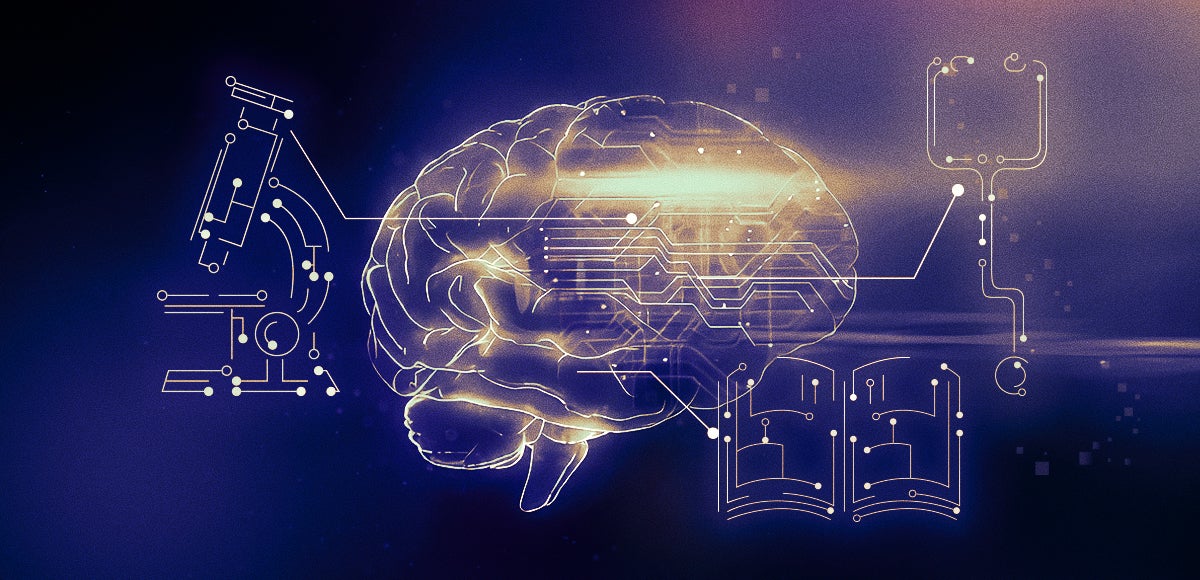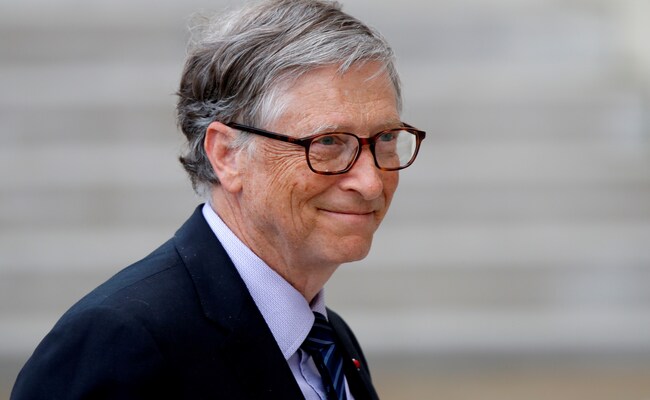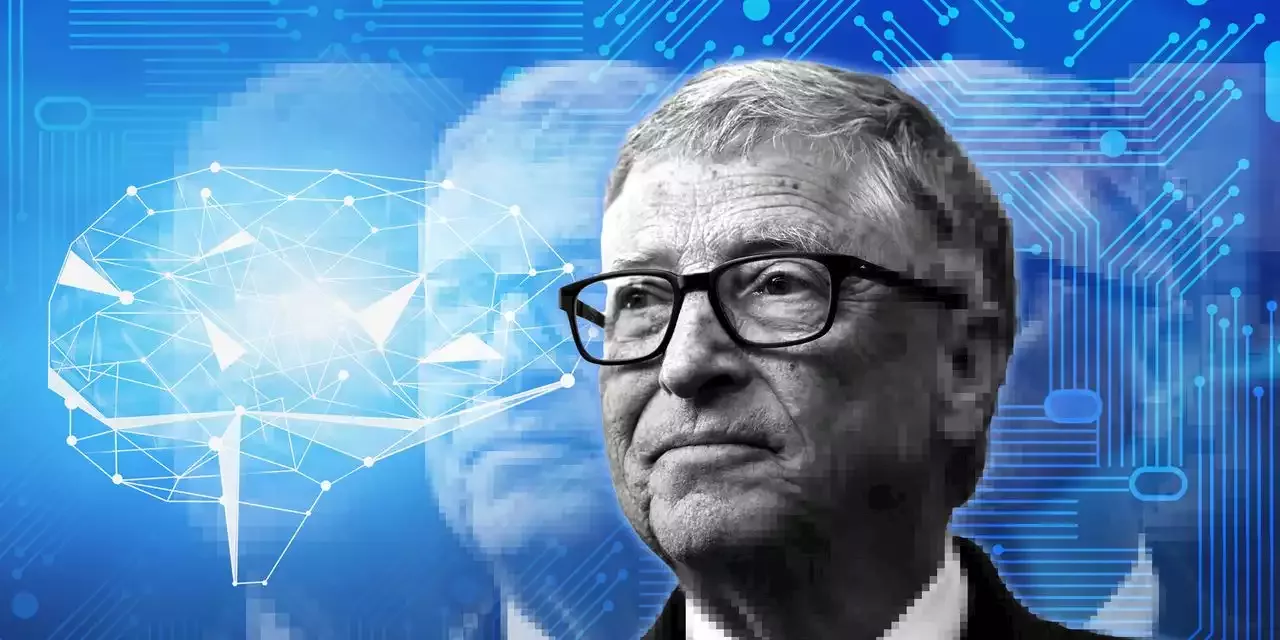According To Bill Gates, OpenAI’s GPT Is The Most Significant Development In Technology Since 1980.
As important as the invention of the microprocessor, the personal computer, the Internet, and the cell phone was the development of artificial intelligence. It will alter how people work, study, travel, receive medical treatment, and interact with one another.

Bill Gates, a co-founder of Microsoft, claims that OpenAI’s GPT AI model is the greatest ground-breaking development in technology since he first encountered a contemporary graphical desktop experience (GUI) in 1980. Before then, command lines were utilized to control computers.
Bill Gates used “GUI” technology to create Windows, a potent piece of modern software. Gates now makes parallels to OpenAI’s GPT models, which can generate computer code that is nearly useable and language that closely resembles human output.

In a blog post, he claimed that he had earlier pushed the OpenAI group to develop an AI system that could pass the Advanced Placement Biology exam. GPT-4, which became publicly available last week, reportedly received the highest score from OpenAI. According to Gates, the entire experience “was wonderful.” I was aware that I had just witnessed the biggest development in technology since the graphical user interface was created.
As important as the invention of the microprocessor, the personal computer, the Internet, and the cell phone was the development of artificial intelligence. It will alter how people work, study, travel, receive medical treatment, and interact with one another. Whole industries will reorganize around it. Companies would differentiate themselves based on how well they used it, he said.
The most well-known techie to date to weigh in on the importance of current developments in AI for the future of technology is Bill Gates. He concurs with previous CEOs of Google and Amazon, Eric Schmidt and Jeff Bezos, who have said that data-based machine learning has the ability to completely alter certain industries. CEOs in the present also see enormous commercial prospects in AI tools and applications. “Phone moment,” defined as the period when new technology becomes widely used, and entrepreneurs perceive chances for new businesses and products, was described by Nvidia CEO Jensen Huang.
OpenAI, the firm that developed the GPT model, has strong ties to Gates and Microsoft. Microsoft made a $10 billion investment in the firm and sells some of its AI technologies for sale via Azure cloud services. Gates suggests that in discussing AI, humans should “balance fears” about biased, inaccurate, or unpleasant technologies with the technology’s capacity to make life better. Moreover, he believes that governments and charitable groups ought to fund the development of AI technology to improve the health and education systems in underdeveloped countries, as corporations would not always choose to make such investments on their own.
OpenAI and Microsoft will collaborate with a new AI startup accelerator.
By joining together with OpenAI and Microsoft Corp, Neo, the startup accelerator established by Silicon Valley investor Ali Partovi, will provide free software and guidance to businesses in a new track that focuses on artificial intelligence.
According to the firm’s announcement, businesses selected into Neo’s AI cohort will receive credits to use Microsoft’s Azure cloud as well as OpenAI’s GPT language generating tool, Dall-E picture production software, and other products. Moreover, Microsoft and OpenAI researchers and mentors will be available to the startups.
Microsoft also reportedly increased its investment in OpenAI by a whopping $10 billion, According to CB Insights, financing for startups in generative artificial intelligence, so named because the technologies are used to generate new material, reached $2.65 billion in 2022, a 71% rise from the previous year. Google, a subsidiary of Alphabet Inc., opened up access to Bard, a conversational AI service that competes with ChatGPT.
According to OpenAI Study, GPT Would Affect 80% of U.S. Employees’ Employment.
It won’t take long for AI to become a common tool in the workplace as sophisticated big language models like OpenAI’s GPT-4 grow more adept at writing, coding, and performing math with more precision and consistency. OpenAI is wagering that GPT models will automate at least a portion of the labor of the vast majority of people.
In a paper, researchers from OpenAI and the University of Pennsylvania hypothesised that at least 10% of the US workforce’s occupations might be affected by the introduction of GPTs, a group of well-known large language models developed by OpenAI.
They also discovered that roughly 19 percent of workers would have at least 50 percent of their duties disrupted. GPT exposure is stronger for higher-income employment, they stated in the report but spreads across practically all industries.
It covers 1,016 jobs with standardized descriptions and serves as the main occupational database in the U.S., to choose the tasks to test for each occupation. To assess if access to GPT directly or through a secondary GPT-powered system would save the time needed for a human to complete a given activity by at least 50%, they gathered both human and GPT-4 produced comments using a rubric. Increased exposure meant that GPT would produce work of higher quality while cutting the task’s completion time in half or more.
The relevance of scientific and critical thinking abilities is substantially negatively correlated with exposure, according to the study’s findings, which suggests that jobs requiring these skills are less likely to be damaged by existing language models. On the other hand, programming and writing abilities have a substantial positive correlation with exposure, suggesting that these professions are more prone to being impacted by language models. )
Mathematicians, tax prepares, authors, web designers, accountants, journalists, and legal secretaries are among the professions with the most exposure. Graphic designers, search marketing strategists, and finance managers are among the professions with the biggest variance or those least likely to be harmed by GPT.
The researchers also list the generally expected effects of GPT on various industries, with data processing services, information services, the publishing sector, and insurance carriers having the most and food manufacturing, wood product manufacturing, and support activities for agriculture and forestry having the least effects.
Due to the human annotators’ familiarity with the capabilities of the models and the fact that they did not work in some of the jobs examined, the researchers concede that their study had limitations. Another drawback was that GPT-4’s results were not always the absolute truth since it was sensitive to the phrasing and structure of the prompt and occasionally made up data.
Naturally, it should be mentioned that OpenAI itself created the content. As a for-profit organization creating AI models, OpenAI has a strong motive to present its tools as disrupting sectors and automating activities, which ultimately helps employers.
Yet, the study shows how GPT models will soon be a widely utilized tool. Google and Microsoft have already announced that AI would be included in their search engines and other office tools like email and documents. Startups already use GPT-4 and its coding capabilities to cut costs on hiring human workers. According to the researchers’ analysis, LLMs like GPT-4 are likely to have widespread effects. Even if we stop developing new capabilities today, LLMs’ expanding economic impact is anticipated to continue and grow even if their capabilities have steadily increased over time.
Bill Gates likes ChatGPT.
One of this century’s most well-known computer titans, Bill Gates and Steve Jobs, have been friends for a very long time. Also, they had a well-known, fierce competition that finally grew into friendship.
When asked what one lesson he took away from Jobs, Gates responded that his inspiration came from his understanding of design and marketing. “Steve taught me a lot” We had nothing in common. He didn’t even write a single line of code, but he had excellent design and marketing sense, and he also had a fantastic intuition for smart engineers. Steve was such a special person who could gain a lot from others.
He did overwork people, so he wasn’t a perfect thing. China has evolved from a technical backwater to one of the world’s top centers for innovation. Shenzhen, the third largest city in the nation, is sometimes referred to as a second Silicon Valley.
When asked whether Russia or China is a more innovative authoritarian state, “The amount of invention in China is fairly big, nothing like American levels,” Gates said. Despite having a smaller population and excellent arithmetic skills, Russia has never fully mastered scaling.
“They entirely abandoned medical innovation, despite the fact that they were excellent 50 years ago. So, yeah, I feel bad for the young generation there that might be making contributions to IT and health advancements. And because they will now be essentially cut off from it, some of them are fleeing the nation. ChatGPT’s most recent iteration is built on OpenAI’s GPT-3.5 LLM (Large Language Model).
According to rumors, its subsequent iteration will be built on GPT-4 and represent a significant improvement because it may be trained on billions more parameters. Gates’ reply implies that a small number of individuals have already been given testing access to ChatGPT’s next version.
Edited by Prakriti Arora




